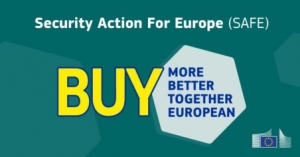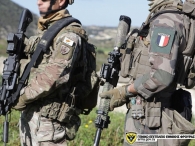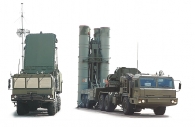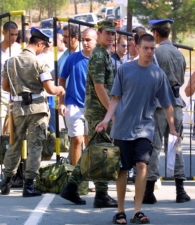THE SAFE PROGRAM AND CYPRUS: EU COLLECTIVE DEFENSE OR DEEPENING NATO DEPENDENCE?
--------------------------------------------
The EU described the SAFE program as a move toward a unified European defense. However, in reality, it strengthens NATO's security framework and Europe's reliance on transatlantic support. For Cyprus, participation offers technological and industrial advantages but does not change its strategic positioning toward Turkey. Despite infrastructure improvements and increased cooperation with Western allies, Nicosia remains outside any core collective defense system, ultimately depending on its own deterrent capabilities and strategic resilience.
------------------------------------------------
By Aristos Aristotelous PhD
Former Member of Parliament, Expert in Defense and Strategic Affairs, Head of the Cyprus Center for Strategic Studies
-------------------------------------------------
Introduction
The EU introduces the Security Action for Europe (SAFE) program as one of the most important initiatives for strengthening the European Union's common defense and advancing its strategic independence. However, in practice, SAFE functions more as a tool to reinforce NATO's security structure than as a basis for an independent European defense stance.
For Cyprus, participating in SAFE provides economic, technological, and research benefits. Yet, it does not significantly change its military or strategic position relative to Turkey, nor does it lessen the threat faced by the Republic of Cyprus.
European Ambition, NATO Reality
Europe's long-standing goal of establishing a real common defense continues to conflict with NATO's current situation. Most EU member states still depend on Article 5 of the North Atlantic Treaty for security, while initiatives like SAFE adhere to NATO standards, procedures, and operational frameworks. With 23 countries holding dual membership in both the EU and NATO, creating an independent European strategic doctrine remains a challenge. France, a leading supporter of such independence, envisions a European defense system capable of balancing Europe's reliance on the United States and NATO. However, European missions still largely depend on NATO support, and under the Berlin Plus arrangement, NATO assets can only be used with unanimous approval, effectively giving Turkey a veto. Although SAFE mainly aims to strengthen Europe's defense industrial base and promote technological innovation, most of its beneficiaries are NATO members, so their enhanced capabilities indirectly strengthen the Alliance. Instead of laying the foundation for a sovereign European defense, SAFE actually amplifies NATO's power—especially important for Cyprus, which does not belong to NATO and cannot join due to Turkey's ongoing veto.
Cyprus and Turkey: Contrasting Roles
Cyprus, an EU member but not a NATO member, is eligible to participate in SAFE-related projects involving research, innovation, and defense industry development. Cypriot companies, like SignalGeneriX Ltd. and Addit Essence Ltd., already participate in or have the potential to join such initiatives, gaining valuable expertise and international partnerships—though they have yet to produce tangible strategic outcomes.
Cyprus's exclusion from NATO significantly limits its access to EU security mechanisms that are closely linked to the Alliance. Meanwhile, Turkey, as a NATO member, can block EU–NATO cooperation in which Cyprus might otherwise be involved. The Berlin Plus framework exemplifies this: Cyprus has no access to NATO information or structures, while Ankara maintains leverage within the system.
Institutionally, Nicosia can veto Turkey's participation in European programs, but this does not balance the military power disparity in the region. Turkey continues to be a dominant regional force, consistently supported by the Alliance.
Infrastructure and Regional Significance
Cyprus seeks to leverage the SAFE initiative and its partnerships with Western allies—particularly the United States and France—to strengthen critical infrastructure, including the Andreas Papandreou Air Base in Paphos and the Evangelos Florakis Naval Base in Limassol.
These facilities, as long as they serve humanitarian and peacekeeping purposes rather than offensive operations for European and international forces, bolster Cyprus's role as a stable and secure pillar in the Eastern Mediterranean. The presence of such forces arguably provides a limited measure of deterrence, restricting Turkey's operational freedom.
However, repeated violations of the status quo in Famagusta and other areas by Turkish occupation forces—as well as air and maritime incursions into the Republic's sovereign zones—highlight the ongoing threat.
Furthermore, this international presence does not include a formal commitment by partner states to defend Cyprus in case of a military conflict. Turkey, on the other hand, remains an essential NATO ally for many of the same powers active in the region, which limits the potential for further strategic elevation of Nicosia's position.
Realism Over Illusion
A true "Collective Defense" within the EU remains a distant goal. SAFE helps boost Europe's technological and industrial growth, but it does not reduce NATO dependence—it actually keeps it alive through member states that belong to both organizations. For Cyprus, SAFE is a tool for development and cooperation, not a security mechanism. The country gains expertise, innovation, and international connections but stays vulnerable to Turkey's ongoing threats. Its geopolitical importance grows mainly as a regional stability hub, with a limited deterrent effect. Ultimately, Cyprus's security depends on its own resilience, deterrent strength, and strategic credibility—foundations that should support the independence and freedom of the Republic of Cyprus beyond any SAFE framework or NATO guarantee.
10 November 2025






